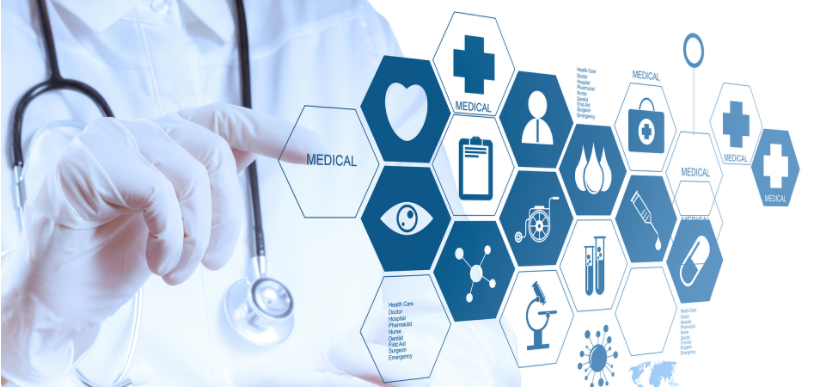With the development of society, science and technology are also marching into the medical industry. The speed of medical innovation is leading the digital transformation of the industry.
At present, better patient participation and experience are needed. In addition, the data generated, tracked, analyzed and used by innovative medical devices in real time is the new currency of health care. In short, digital transformation promotes research and development and improves the operational performance, productivity, efficiency and cost-effectiveness of the entire healthcare value chain.
the fundamental driving force behind digital conversion is the emerging technology that provides the company with digital foundation and competitive advantage. These include artificial intelligence (AI), blockchain, cloud, and virtual reality. Moreover, adopting these technologies will enable biopharmaceutical companies to innovate new products and services, attract customers more effectively and implement processes more effectively.
In this regard, let's look at the status of the digital transformation of healthcare in 2021:
On-demand medical care: the transition to on-demand medical care is increasing. The so-called "on-demand medical treatment" means that patients can consult doctors at convenient times and anywhere. It has proved to be beneficial, especially for patients suffering from chronic diseases or other non-serious diseases. Significant advances in telemedicine and communication channels are helping consumers get treatment through video calls. For example, companies such as Momad Health (an online market that directly links doctors with medical institutions for short-term work) are helping doctors provide their talents to customers under specific circumstances, on-demand medical services that match professional knowledge and schedule.
The rise of wearable devices; In the past, most people had to have a physical examination or health examination every year when problems occurred. But today, people are actively paying attention to the prevention work, thus more frequently demanding to know their health status. Therefore, healthcare companies invest in wearable technology devices that can continuously track and collect patients' health data. It can provide the latest monitoring of high-risk patients and determine the possibility of major health events.
Tools and services that support Ai: AI is becoming another component of medical services. Patients are increasingly familiar with AI-based chat robots and virtual health assistants. Medical artificial intelligence may mean that a robot helps human nurses complete daily tasks, such as retrieving and restocking. In addition, artificial intelligence can be further applied to precision medicine, drug discovery, medical imaging and genomics.
Blockchain: it has proved to be an effective tool for the medical industry. It promotes the safe transmission of patient medical records and the management of drug supply chain. It is an electronic health record (EHR) or digital medical chart, including from the patient's medical history and diagnosis to the treatment plan, immunization date and test results, and their demographic and financial details. Therefore, through the block chain, the medical system can bring accuracy and eliminate information hacker attacks.
5G mobile technology enables instant medical treatment: 5G technology allows instant streaming, downloading and uploading. In telemedicine, this means that patients will experience better video conference quality regardless of location. In addition, doctors can also perform accurate and real-time imaging of organs and bones, which will greatly reduce the risk of misdiagnosis. 5G is designed to support technologies such as artificial intelligence and extended reality to enhance current services and applications, thus providing a better user experience.
Medical Institution management 4.0: Information overload, lack of real-time intervention or ineffective communication are some core challenges of medical institution management. But in medical institution Management 4.0, these obstacles can be solved by modern technology. Medical Institution management 4.0 includes real-time communication of all medical institution data without interruption; Internet of Things Digital Network; End-to-end process organization to minimize triggering behavior among patients; patient-centered services.
The Wind of reform has begun to blow to the medical system. However, it still has a long way to go before patients and skilled users can cross national borders and make themselves convenient and comfortable. There is no doubt that technology will play an important role in improving the digital medical space and giving medical practitioners a unique experience.


